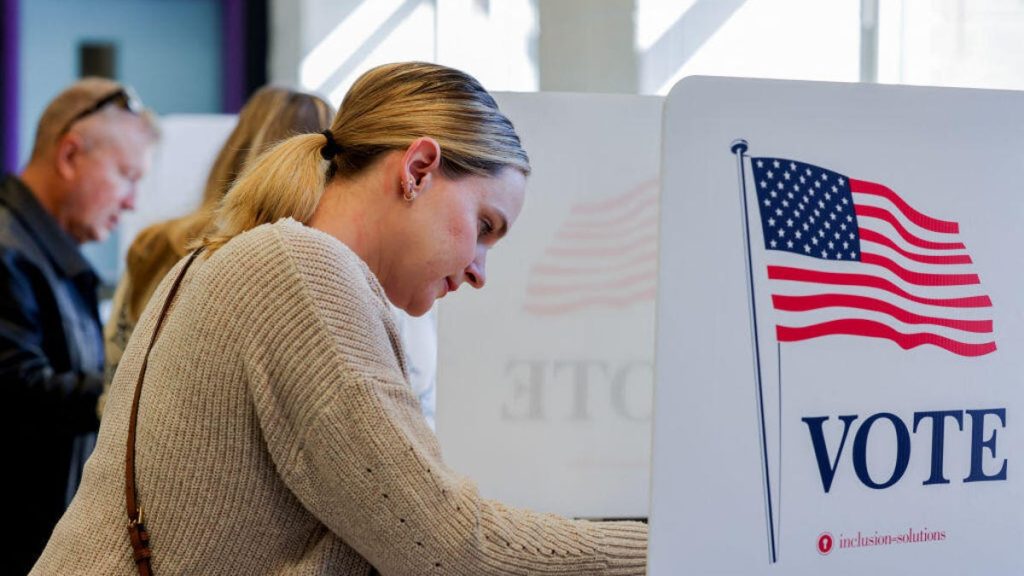With polls closing in the Eastern United States, officials and advocates report minimal voting-related problems but caution against disinformation aimed at undermining trust in the democratic system. Former President Donald Trump continues to make baseless claims of election rigging, referencing Philadelphia and Detroit, despite police debunking his allegations. Damon Hewitt, of the Lawyers’ Committee for Civil Rights Under Law, acknowledges minor incidents but highlights that most voters are casting ballots smoothly amidst a backdrop of disinformation and legal challenges aimed at impeding voting.
Despite scattered issues such as malfunctioning equipment and longer lines at polling places, the overall voting process remains relatively smooth. Early disruptions, including non-credible bomb threats at Georgia polling places, led to temporary closures but did not deter voters. The FBI noted the threats, originating from Russian email domains, were not deemed credible. Hewitt assured Georgia voters’ safety while pushing for extended polling hours at affected locations to accommodate delays. Similarly, extended hours are sought at select Pennsylvania polling places experiencing lengthy wait times.
Cybersecurity and Infrastructure Security Agency officials confirmed the overall smooth voting process at a national level, with concerns over potential disinformation campaigns by adversarial countries like Russia and Iran post-election. CISA Director Jen Easterly warned of a continuous onslaught of disinformation aimed at eroding trust in democracy, stressing the importance of relying on trusted sources for election information. Easterly condemned influential figures like Trump and Elon Musk for spreading election disinformation, calling it detrimental to democracy and posing threats to election officials.
The ongoing discharge of election-related disinformation by foreign adversaries poses a significant threat to the democratic process, requiring vigilance and caution from the public in consuming information. The efforts to spread false narratives and sow seeds of doubt can harm the integrity of elections and erode public trust in the electoral system. It is crucial for individuals to seek information from reliable sources and refrain from amplifying unverified claims that could potentially destabilize the democratic process. By staying informed and upholding the principles of transparency and accountability, citizens can safeguard the integrity of elections and defend democracy against external interference.
The Election Protection group highlights the resilience of American voters in the face of disinformation and legal challenges, emphasizing the importance of letting democracy work unhindered. Despite attempts to disrupt the voting process, the majority of voters are successfully casting their ballots, underscoring the strength of the democratic system. By addressing isolated incidents promptly and ensuring access to polling locations, authorities are working to uphold the foundational principles of free and fair elections. Through coordinated efforts to protect voting rights and defend against disinformation, stakeholders are safeguarding the integrity of the electoral process and preserving democracy for all citizens.












